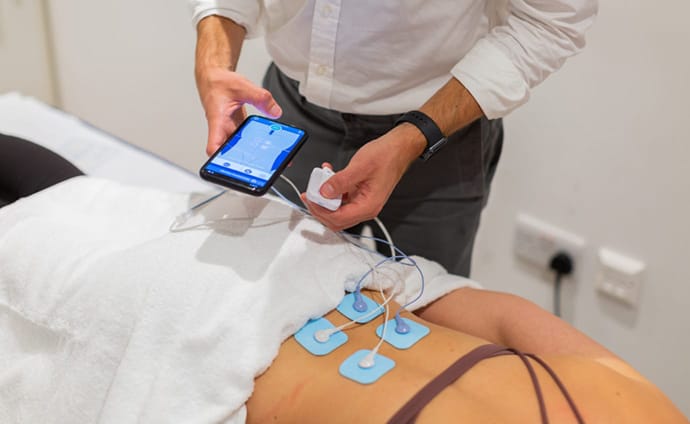Ever wondered how your body coordinates all your movements, thoughts and sensations – from telling your hand to pull back from something hot you touch, to telling your legs how to move when you walk? It’s all controlled by your nervous system.
Your nervous system (which is made up of all the nerves in your body) carries electrochemical signals to all your other tissues and organs. But, not all nerves are created equal. It’s important to understand that there are four different types of nerves in your body, all of which can cause you pain.
The four types are:
- Cranial nerves, which connect your eyes, ears, nose and mouth to your brain.
- Central nerves, which connect your brain and spinal cord.
- Peripheral nerves, which connect your spinal cord with your limbs.
- Autonomic nerves, which connect the brain AND spinal cord with your major organs.
But, what causes nerve pain?
There are many different causes of nerve pain. Chronic nerve pain can linger after an illness like shingles, an injury or even a more serious condition like a stroke or cancer. But regardless of the cause, physiotherapy can help decrease pain and increase the functionality of the affected area.
A good physio will be able to assess and diagnose whether your nerve pain is central or peripheral (which is why Dr Google isn’t going to cut it!) and treat you appropriately.
What types of nerve pain are there?
Nerve pain can be central to one area of the body and may manifest as a sharp, shooting pain, pins and needles or numbness. Or it can be peripheral, meaning it is being referred from one part of the body (such as the spine) causing pain, numbness or pins and needles in another part of your body. A good physio will be able to assess and diagnose whether your nerve pain is central or peripheral (which is why Dr Google isn’t going to cut it!) and treat you appropriately.
Common types of nerve pain include:
- Sciatica: pain, numbness or pins and needles in your legs caused by pressure on the nerves in your lower back.
- Fibromyalgia: burning or aching chronic pain, which can occur in any part of the body. The cause is not known, but there are theories it could be due to genetics or emotional triggers.
- Peripheral neuropathy: nerve pain that occurs specifically when the peripheral nerves that connect the brain and spinal cord to the rest of the body are damaged. It can be caused by a number of conditions including diabetes or autoimmune diseases.
Physiotherapy treatments for nerve pain
At Spectrum, all clients are assessed and then prescribed a completely personalised treatment plan based on their condition and needs. Our 360 approach to physio means that more often than not, a treatment plan will be made up of a number of different types of treatment and technologies, so there is never going to be a ‘one size fits all’ approach to fixing nerve pain.
However, one treatment that we commonly include in a nerve pain plan is the use of Transcutaneous Electrical Nerve Stimulation, better known as TENS.

This is a non-invasive electrotherapy treatment that is used to reduce pain and stimulate muscles. It basically ‘talks’ to the nerves and helps to ease pain by blocking pain signals to the brain or, in the case of loss of sensation, re-activate the nerves so they can start functioning properly again.
At Spectrum, we use Bluetens, which is a next-generation TENS treatment. Unlike classic electrostimulation devices, Bluetens is lightweight, compact and much more affordable than other options, which is why we are able to offer it as part of a normal treatment, with no additional costs.
So, if you think you may be experiencing pain or loss of sensation due to an issue with your nerves, don’t play the guessing game. See a qualified health practitioner so that they can correctly assess, diagnose and devise a treatment plan that will have you feeling better in no time.
Spectrum guarantee appointments within 24 hours, Monday to Friday 7am to 8pm. Contact us today to lock in your spot now.



